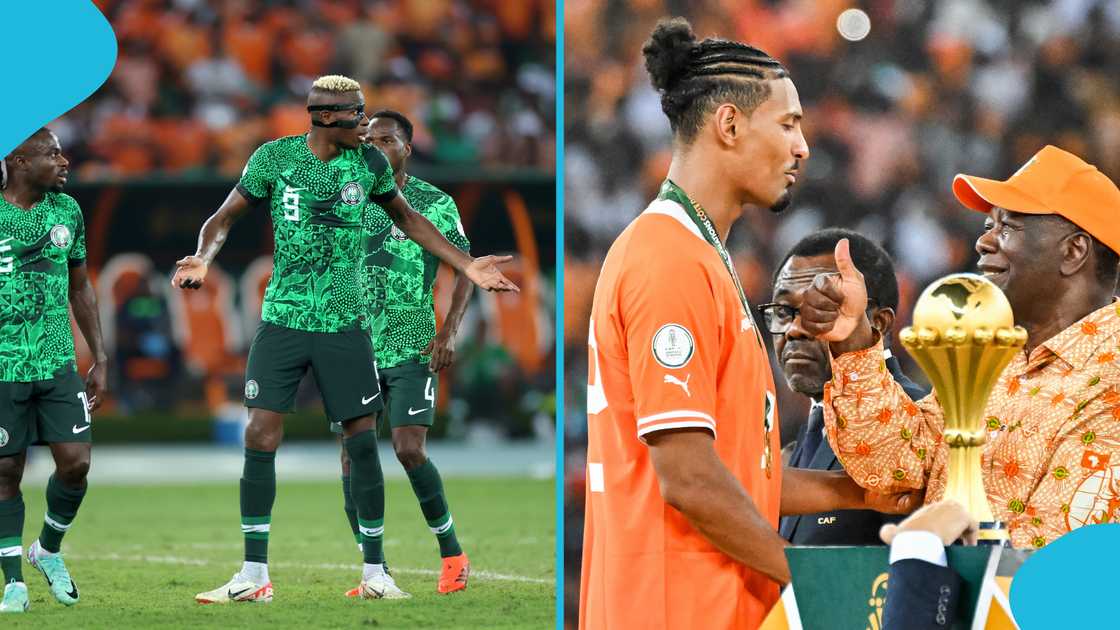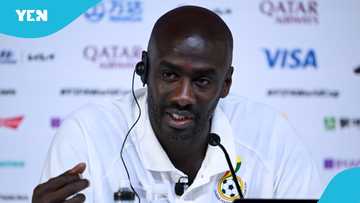Suspended from AFCON: The 7 African Nations That Faced Bans
- The Republic of Congo is in talks with FIFA and CAF to remove sanctions barring its football federation from international competitions
- FIFA suspended the country due to alleged third-party interference, which violates its regulations
- Countries in Africa have been banned from playing at AFCON for various reasons, including government interference
Don't miss out! Get your daily dose of sports news straight to your phone. Join YEN's Sports News channel on WhatsApp now!
The Republic of Congo has engaged in discussions with FIFA and the Confederation of African Football (CAF) to lift the sanctions preventing its football federation from participating in international competitions.
FIFA, in coordination with CAF, suspended Congo on Friday, citing third-party interference in the country's football affairs, a violation of FIFA regulations. However, Congo denies any wrongdoing.

Source: Getty Images
The Confederation of African Football (CAF) and FIFA bans have prevented many countries from playing in the competition.
South Africa's apartheid policies saw them expelled from CAF in 1957 but returned to international football in 1991.
In the following years, teams would be banned from AFCON mainly for government interference.
YEN.com.gh looks at some of the countries that were banned from the tournament or qualifiers.
7 teams banned from AFCON
Morocco
Morocco were banned from the 2015 and 2017 AFCON for pulling out as hosts of the 2015 events. The North African nation pulled out, citing risks posed by fans travelling from Ebola-hit countries in West Africa.
CAF fined Morocco 1 million dollars for pulling out as hosts and ordered their federation to pay 8 million euros as compensation to CAF, per The Guardian.
In 2015, they won their appeals against their bans from the 2017 and 2019 AFCON tournaments and had their fines reduced, per BBC. They reached the quarter-final in 2017. They will host the 2025 edition.
Nigeria
The Super Eagles are giants of African football, but they've had many ups and downs at AFCON. They've won it three times and suffered some painful defeats.
Nigeria were banned in 1996 when President Sani Abacha withdrew the team from the tournament in South Africa due to Nelson Mandela's criticism. The Super Eagles were banned from the 1998 edition in Burkina Faso. The ban came at a time when Nigeria had their Golden Generation.
South Africa
South Africa was in the football wilderness for decades because of apartheid policies. FIFA suspended them in 1964 and expelled them 10 years later. Their football governing body was readmitted in 1992, and their first match was against giants Cameroon. CAF expelled South Africa in 1960 and was the first to invite them back in early 1992 after Nelson Mandela was freed.
They won the 1996 AFCON and qualified for the 1998 and 2002 World Cups. South Africa became the first African nation to host the World Cup in 2010.
Kenya and Zimbabwe
In 2022 Kenya and Zimbabwe were banned in 2022 because of government interference.
Kenya's sports ministry disbanded the Football Kenya Federation (FKF) for alleged misappropriation of funds.
Zimbabwe, on the other hand, suspended the Zimbabwe Football Association (ZIFA) for alleged sexual harassment. Both teams missed the 2023 AFCON in Ivory Coast.
Chad and Sierra Leone were also banned in 2021 because of government interference.
Mali and Ivory Coast
These two West African football giants were both banned from the 1978 AFCON in Ghana. Ivory Coast beat Mali to qualify, but there was some controversy. The late Igance Guidy played under the false name Ignace Kablan for the Elephants.
He used the name to lie about his age to play at the World Youth Championships in 1977. Mali reported Ivory Coast, who were later disqualified. Interestingly, Mali had also fielded an ineligible player, which resulted in their disqualification, per Sportstar.
Antonio tips Kudus for top award
Earlier, Yen.com.gh reported that West Ham United's Jamaica forward Michail Antonio believes teammate Mohammed Kudus has the potential to win the coveted African Player of the Year Award.
Kudus enjoyed an outstanding first season in England, scoring 14 goals and delivering six assists for the Hammers. He played a pivotal role as the Hammers reached the quarter-finals of the Europa League, where they were eliminated by runners-up Bayer Leverkusen.
The 24-year-old is currently the best dribbler in Europe, with 111 successful take-ons in 2024.
New feature: Сheck out news that is picked for YOU ➡️ click on “Recommended for you” and enjoy!
Source: AFP





